★★★
“Many Mad Maxines.”
 This one may be the origin of the meme, “After the apocalypse, food, water and gasoline are in short supply – but hair-spray will still be plentiful.” For there’s no denying the absolute silliness of this slab of post-apocalyptic nonsense. But it’s still imaginative and energetic enough that my interest was largely sustained. We’re apparently long enough after World War III for it all to have become the stuff of almost-forgotten legend. In the aftermath, the world is now occupied by roaming bands, mostly of men. However, certain women are gifted with special powers, and they have banded together into the titular group, under their reverend mother, and are feared by most as witches.
This one may be the origin of the meme, “After the apocalypse, food, water and gasoline are in short supply – but hair-spray will still be plentiful.” For there’s no denying the absolute silliness of this slab of post-apocalyptic nonsense. But it’s still imaginative and energetic enough that my interest was largely sustained. We’re apparently long enough after World War III for it all to have become the stuff of almost-forgotten legend. In the aftermath, the world is now occupied by roaming bands, mostly of men. However, certain women are gifted with special powers, and they have banded together into the titular group, under their reverend mother, and are feared by most as witches.
After her settlement is attacked by Mikal (Wagner, looking like a low-rent Chuck Norris), and her brother killed, Marya (Johnson) hits the road, seeking revenge. She meets two members of the Sisterhood, Alee (Holden) and Vera (Patrick), and when they discover Marya’s gift, the ability to communicate with her pet hawk, they allow her to join them. Vera is abducted by Mikal, who then heads off to add her to the collection of Sisterhood members, being held in one of the few remaining cities. Alee and Marya follow, until a shortcut into the forbidden zone of radiation and mutants lets them stumble across a pre-apocalypse arms dump. Now armed with automatic weapons and a tank (!), they are thoroughly well-equipped, first to rescue Vera, and then storm the city and liberate the rest of their sisters.
Made in 1988, the debt this owes to the Mad Max trilogy (which had finished with Beyond Thunderdome, three years earlier) is apparent to the point of being blatant. There’s a lot of whizzing around in a quarry, with giant fireballs going off just to the side of the target. For, while it’s remarkable the heroines are able immediately to drive their tank, their talents clearly do not extend to aiming the guns accurately. This is all highly mockable, not least that it’s apparently set in the far-distant future of… er, the year 2021. Yet those involved play it all entirely straight, and eventually I found this seriousness rubbing off on me. There were occasional moments which, if not making me go “Wow!”, did extract a somewhat-impressed “Huh.”.
Director Santiago should be well-known to readers here, having also given us Angel Fist and The Muthers; he brings much the same combination of female empowerment and exploitation here. Because, for all the strong female characters, they also seem to spent a inordinate amount of time either chained up or getting their tops ripped open – and, occasionally, both. But Holden and Johnson manage to rise above the low-rent production values with their dignity intact – even if nothing remotely like the video sleeve is to be found in this one! By the admittedly low standards of the genre, this is likely well-above average. And we only have to wait two years for it all to come to pass…
Dir: Cirio H. Santiago
Star: Rebecca Holden, Chuck Wagner, Lynn-Holly Johnson, Barbara Patrick





 A solid enough entry in the Jap-splat genre, this benefits mostly from a winning central performance from Uchida as the title character, Giko Nokomura. Her family are in the demolition business, which is at least a token gesture towards explaining the F-sized chainsaw she carries everywhere – initially in a guitar case! She’s a bit of a delinquent, harking back to the sukeban movies of the sixties like
A solid enough entry in the Jap-splat genre, this benefits mostly from a winning central performance from Uchida as the title character, Giko Nokomura. Her family are in the demolition business, which is at least a token gesture towards explaining the F-sized chainsaw she carries everywhere – initially in a guitar case! She’s a bit of a delinquent, harking back to the sukeban movies of the sixties like 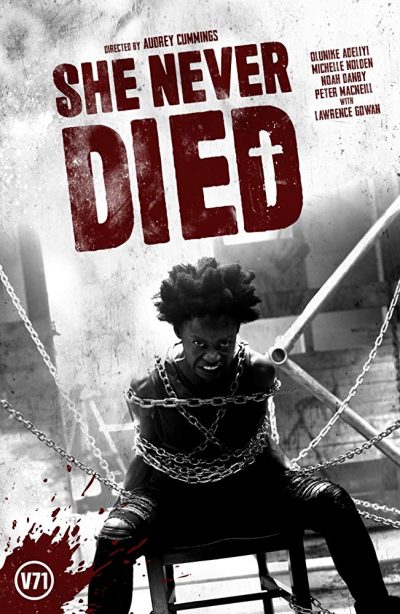
 This is neither a prequel nor a sequel to He Never Died, but is clearly related, and takes place in the same universe. Like its predecessor, it was written by Jason Krawczyk, who hands the directorial reins over to Cummings for this. And it probably works better as a result. I tend to think having a separate writer and director allows each to build on the other’s talents, while countering the weaknesses. In particular, He, which starred Henry Rollins, didn’t have quite enough plot to sustain it. That isn’t an issue here, resulting in improved pacing. Combine this with the ultimate “give no damns” performance at its core, and you’ve got one of the best action heroine films of 2019.
This is neither a prequel nor a sequel to He Never Died, but is clearly related, and takes place in the same universe. Like its predecessor, it was written by Jason Krawczyk, who hands the directorial reins over to Cummings for this. And it probably works better as a result. I tend to think having a separate writer and director allows each to build on the other’s talents, while countering the weaknesses. In particular, He, which starred Henry Rollins, didn’t have quite enough plot to sustain it. That isn’t an issue here, resulting in improved pacing. Combine this with the ultimate “give no damns” performance at its core, and you’ve got one of the best action heroine films of 2019.
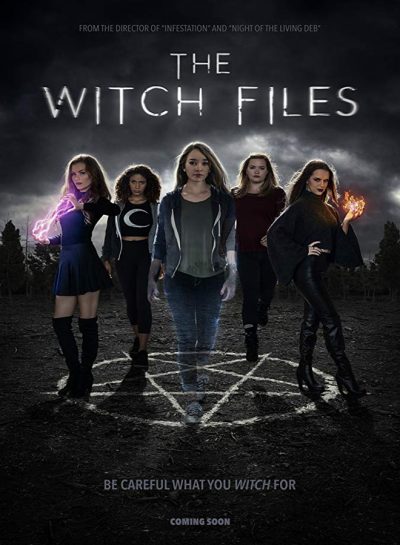 If John Hughes directed a film about witchcraft, it’d probably end up like this. For you have five stereotypical high-school girls in detention: Brooke the rich bitch (Ziolkoski); Greta the jock (Adrienne Rose-White); M.J. the timid mouse (Robinson); Jules the goth (Flatmo); and Claire the nerd (Taylor), who isn’t actually
If John Hughes directed a film about witchcraft, it’d probably end up like this. For you have five stereotypical high-school girls in detention: Brooke the rich bitch (Ziolkoski); Greta the jock (Adrienne Rose-White); M.J. the timid mouse (Robinson); Jules the goth (Flatmo); and Claire the nerd (Taylor), who isn’t actually 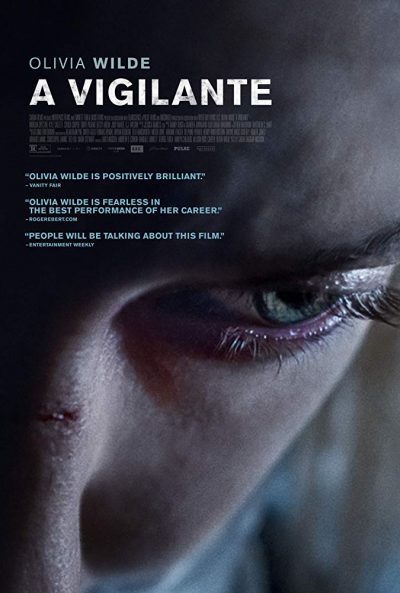 Sadie (Wilde) has escaped from an abusive relationship with her husband (Spector), but at a terrible cost: the death of her son. In an effort to come to terms with her grief, and make use of the survivalist skills forcibly imposed on her, she becomes a vigilante. Responding to coded messages left on her phone, she travels around to confront abusers and prove that there is someone tougher, willing to stand up for the victims against them. But this doesn’t give Sadie the closure or peace that she seeks. Before she can help others, she’s first going to have to help herself, and confront the man who made her what she is.
Sadie (Wilde) has escaped from an abusive relationship with her husband (Spector), but at a terrible cost: the death of her son. In an effort to come to terms with her grief, and make use of the survivalist skills forcibly imposed on her, she becomes a vigilante. Responding to coded messages left on her phone, she travels around to confront abusers and prove that there is someone tougher, willing to stand up for the victims against them. But this doesn’t give Sadie the closure or peace that she seeks. Before she can help others, she’s first going to have to help herself, and confront the man who made her what she is.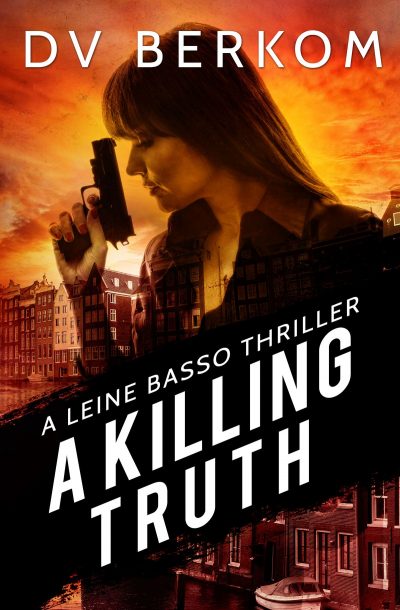 Leine (short for Madeleine) Basso quit her job as a somewhat-sanctioned government assassin, after realizing her boss was using her to carry out off-book, non-sanctioned ops for his personal gain. Oh, and he also tricked her into killing her lover, and b Initially working in private security, she is hired on a reality show, following the murder of a contestant (Book 1: Serial Date) by a serial killer out to make a point. Leine’s daughter is abducted, and it turns out the perpetrator is a shadow from her past, with a grudge.
Leine (short for Madeleine) Basso quit her job as a somewhat-sanctioned government assassin, after realizing her boss was using her to carry out off-book, non-sanctioned ops for his personal gain. Oh, and he also tricked her into killing her lover, and b Initially working in private security, she is hired on a reality show, following the murder of a contestant (Book 1: Serial Date) by a serial killer out to make a point. Leine’s daughter is abducted, and it turns out the perpetrator is a shadow from her past, with a grudge. That’s a technical issue, not particularly relevant to this review, however. To be honest, when I got the first book, I was expecting more globetrotting assassinations, and less stuff more befitting a PI or homicide detective, which is really what the first two books are more like. Things perk up considerably in #3, with Leine having to handle life south of the border; you’ll probably be crossing Mexico off your list of potential destinations by the time you’re done there. They do seem – consciously or not – to become more exotic and international, as they go on. #4 and #5 take place almost exclusively abroad, to the point that I felt a bit sorry for Leine’s boyfriend, who must barely see her!
That’s a technical issue, not particularly relevant to this review, however. To be honest, when I got the first book, I was expecting more globetrotting assassinations, and less stuff more befitting a PI or homicide detective, which is really what the first two books are more like. Things perk up considerably in #3, with Leine having to handle life south of the border; you’ll probably be crossing Mexico off your list of potential destinations by the time you’re done there. They do seem – consciously or not – to become more exotic and international, as they go on. #4 and #5 take place almost exclusively abroad, to the point that I felt a bit sorry for Leine’s boyfriend, who must barely see her!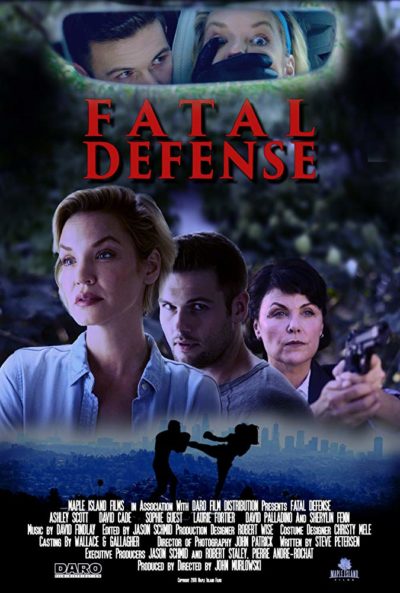 Single mother Arden Walsh (Scott) and her daughter Emma (Guest) are traumatized by a home invasion, and at the insistence of mom’s cop sister, Gwen (Fortier), Arden signs on for a self-defense class given by the hunky Logan Chase (Cade). He’s a bit… intense, shall we say. Despite some initial bonding over their ex-marriedness, it’s not too long before Arden discovers his methods leave “unconventional” lying in the dust. Probably about the point where he zip-ties Arden and tosses her in the trunk of his car. At this stage, she decides to forego further classes. Except, Logan is having none of it, and even teams up with the original burglar to put Arden through further “training”.
Single mother Arden Walsh (Scott) and her daughter Emma (Guest) are traumatized by a home invasion, and at the insistence of mom’s cop sister, Gwen (Fortier), Arden signs on for a self-defense class given by the hunky Logan Chase (Cade). He’s a bit… intense, shall we say. Despite some initial bonding over their ex-marriedness, it’s not too long before Arden discovers his methods leave “unconventional” lying in the dust. Probably about the point where he zip-ties Arden and tosses her in the trunk of his car. At this stage, she decides to forego further classes. Except, Logan is having none of it, and even teams up with the original burglar to put Arden through further “training”. The first in an intended trilogy, this stands on its own reasonably well, balancing between tying up the loose ends and leaving the future uncertain. The heroine is Ja-Yoon (Kim), who begins by escaping from a shadowy, quasi-governmental facility as a raw eight-year-old, despite being hunted by the woman in charge, Dr. Baek (Jo) and her minions. She is found by husband and wife farmers, and they adopt Ja-Yoon, who has no apparent memory of her early life as their own. Ten years later, with Mom suffering from Alzheimer’s, and the farm struggling financially, Ja-Yoon enters a nationwide singing contest. However, the resulting attention brings her firmly back on the radar of Dr. Baek and Nobleman (Choi), the other survivor from that night a decade ago. The not-so-good doctor won’t let Ja-Yoon escape this time.
The first in an intended trilogy, this stands on its own reasonably well, balancing between tying up the loose ends and leaving the future uncertain. The heroine is Ja-Yoon (Kim), who begins by escaping from a shadowy, quasi-governmental facility as a raw eight-year-old, despite being hunted by the woman in charge, Dr. Baek (Jo) and her minions. She is found by husband and wife farmers, and they adopt Ja-Yoon, who has no apparent memory of her early life as their own. Ten years later, with Mom suffering from Alzheimer’s, and the farm struggling financially, Ja-Yoon enters a nationwide singing contest. However, the resulting attention brings her firmly back on the radar of Dr. Baek and Nobleman (Choi), the other survivor from that night a decade ago. The not-so-good doctor won’t let Ja-Yoon escape this time. An amiable piece of light fluff from Korea, while this probably doesn’t need to be 117 minutes long, the time passed comfortably enough. After many years of failing the civil service entrance exam, Jang Young-shil (Kang) finally succeeds and is rewarded with a contract job in the national security agency. However, she’s still mediocre, and is laid off. Fortunately, she overhears her boss (Jo) having been phone-phished out of $500,000 of departmental funds, and is the only agent available to go undercover in the ‘boiler room’ carrying out these scams. There, she recognizes another employee, Na Jung-an (Han) – having seen her take out a pickpocket on the subway, she knows Na is an undercover cop. The two women, of sharply disparate backgrounds and skill-sets, form an uneasy alliance, seeking to take down the charismatic boss of the con company, Min Seok (Namkoong).
An amiable piece of light fluff from Korea, while this probably doesn’t need to be 117 minutes long, the time passed comfortably enough. After many years of failing the civil service entrance exam, Jang Young-shil (Kang) finally succeeds and is rewarded with a contract job in the national security agency. However, she’s still mediocre, and is laid off. Fortunately, she overhears her boss (Jo) having been phone-phished out of $500,000 of departmental funds, and is the only agent available to go undercover in the ‘boiler room’ carrying out these scams. There, she recognizes another employee, Na Jung-an (Han) – having seen her take out a pickpocket on the subway, she knows Na is an undercover cop. The two women, of sharply disparate backgrounds and skill-sets, form an uneasy alliance, seeking to take down the charismatic boss of the con company, Min Seok (Namkoong).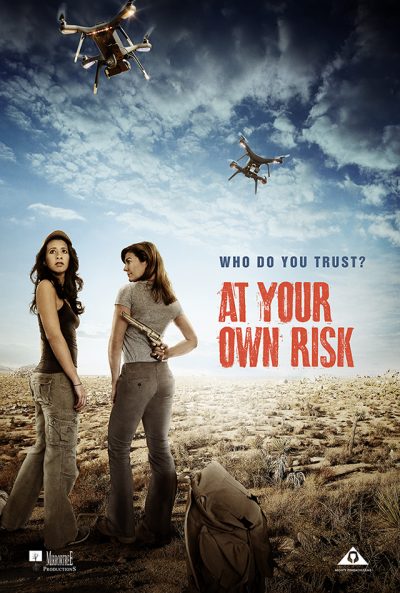 This is one of those films where
This is one of those films where